If your car's air conditioner compressor isn't working properly, you may be wondering how to test it. We'll show you how to use a multimeter to test the AC compressor in your car. This is a simple procedure that only takes a few minutes and can help you in diagnosing any problems with your AC compressor. Keep reading for more information on how to test your car's air conditioner compressor. If your car's air conditioner compressor isn't working properly, you may be wondering how to test it. We'll go over how to use a multimeter to test the AC compressor in your car. This is a simple procedure that only takes a few minutes and can help you in diagnosing any problems with your AC compressor.
Signs Of A Bad Car AC Compressor:
- Clogged or dirty condenser:
The condenser can become clogged with debris and dirt, leading to reduced efficiency in the compressor's cooling ability.
- Low refrigerant levels:
Refrigerant is necessary to create the cool air that comes out of your car AC system- if there is insufficient refrigerant, it could cause problems with the compressor.
- Failed relays or switches:
The relays and switches that control the operation of the compressor can sometimes fail, leading to issues with its performance.
- Bad clutch assembly:
If the clutch assembly for your car’s AC compressor has worn out over time, it may cause problems with the proper operation of your AC system.
- Leaks:
If there are any leaks in the system, then it could cause a decrease in performance from your car’s AC compressor.
- Faulty wiring connections:
Poor wiring connections can result in issues with power delivery to the compressor and improper operation of your AC system.
- Bad fan motor:
The fan motor is responsible for providing airflow to the condenser, so if it has become faulty or stopped working properly, this could lead to problems with your car's AC compressor as well.
- Bad bearing seals:
The bearing seals help keep refrigerant contained within the system, which is necessary for the proper operation of the compressor- worn-out bearing seals may result in leaks and improper operation.
- Worn out pulley:
The pulley helps the compressor to operate at the correct speed- if it has become worn or damaged, then this could lead to problems with the compressor’s performance.
- Clogged evaporator core:
If debris has clogged up your car’s evaporator core, then this may cause problems with airflow from the AC system and affect the compressor's ability to cool air properly.
These are some of the most common issues that can arise with a car AC compressor- by recognizing these issues early on, you can avoid more serious complications down the road! If you have any questions or concerns regarding your car’s AC compressor, it’s best to consult with a qualified automotive technician. They will be able to diagnose any problems and provide you with the right solutions for restoring your car’s air conditioning system to optimal performance.
A Step-by-Step Guide - How To Test Car AC Compressor With Multimeter
1. Check the power source:
Make sure your car is off and has been running for at least 10 minutes before you begin testing the AC compressor. Check that all fuses are in place, and then check for a live power source in the circuit by using a multimeter set to voltage DC mode.
2. Connect ground to the compressor relay:
Now connect one of the leads of your multimeter to the ground, and then attach it to the compressor relay located under the hood of your car. This will allow you to measure any electrical current flowing through it while you test different components.
3. Test resistance on wires leading to compressor relay:
Use your multimeter again and set it to ohms mode so that you can test the resistance on the wires leading to and from the compressor relay. The reading should be between 0.5-2 ohms for a normal working system.
4. Check voltage at terminals of compressor clutch:
This can easily be done by setting your multimeter to AC mode and then attaching its leads to the two terminals of the compressor clutch. The voltage there should be between 10-16 volts, depending on the model of the car you are testing. If it is less than this, you may have an issue with either the wiring or the compressor itself.
5. Test grounding wire:
Finally, check that your grounding wire is securely attached to its terminal under the hood. You can do this easily using a multimeter set to DC mode, which should read 0 volts if everything is connected properly.
By following these steps, you can determine if your car's AC compressor is in good working condition. If any of the readings are abnormal, it may be a sign that something needs to be replaced or repaired and you should consult with a certified mechanic for further assistance.
How Does An Car Ac Compressor Work?
An automotive air conditioner compressor, otherwise known as an AC compressor, is a key component of the car’s air conditioning system. It works by compressing the refrigerant (the chemical used to cool the air) so that it can flow through the air conditioner evaporator. The compressor is powered by a belt driven by the engine and as it runs, it pressurizes the refrigerant which creates heat. The heat is then expelled outside of the car via condenser coils.
The compressor also has a clutch that allows for the cyclic operation of the compressor’s internal components. When needed, these components are engaged to create power and rotation of the system’s shafts with each revolution drawing in refrigerant from outside and expelling it inside. This process continues until a predetermined pressure level is reached whereupon the clutch disengages itself, stopping the further rotation of the compressor.
The pressure level, which is regulated by the car’s air conditioning system, is what controls the flow of refrigerant and ultimately determines how cold or warm your car gets when you turn on the air conditioner. As such, a properly working AC compressor is crucial for maintaining comfortable temperatures in your car. If it isn’t functioning correctly, then you won’t be able to cool down your vehicle no matter how high you set the dial.
The function of an AC Compressor
The main function of an AC compressor is to compress the low-pressure refrigerant from the evaporator and then release it as high-pressure vapor into the condenser. The compressor also pumps the air which circulates the car's cabin to provide cooling. The air conditioning system requires a certain amount of pressure to operate correctly, so the AC compressor must remain in good working condition if you want your car’s air conditioning system to function efficiently.
Maintenance Tips
You must maintain your car’s AC compressor if you want it to work properly. Here are some tips to help keep your AC compressor in top condition:
- Regularly check the belt that connects the compressor and engine for any signs of wear or damage.
- Take note of any strange noises coming from the air conditioning system as this could indicate a problem with the compressor.
- Check all hoses and connections for leaks and replace any faulty parts immediately.
- Your AC compressor inspected by a professional at least once a year to ensure that it is working correctly.
By following these simple maintenance tips, you can help ensure that your car's AC compressor continues to work efficiently and provide cool air throughout the summer months.
Frequently Asked Questions:
What is a CAR AC compressor?
The AC Compressor is an essential component of a car's air conditioning system that helps to cool the interior of the vehicle. It works by pumping refrigerant through the system, which creates pressure and allows for heat transfer from inside the car to outside. This helps create cold air in the cabin, making it comfortable for passengers. Without this important component, your car's air conditioning would not be able to function properly.
How often should I replace my CAR AC compressor?
Generally speaking, if your vehicle’s AC system is working correctly and there are no signs of damage or wear, you won't need to replace your compressor for the life of your car. However, if you notice any signs of damage such as leaks or strange noises coming from the compressor, it is best to replace it sooner rather than later to preserve the functionality of your AC system.
What are the signs that my CAR AC compressor needs to be serviced?
Signs that may indicate your CAR AC compressor needs servicing include a decrease in cooling power, strange noises when operating, leaking refrigerant, and vibrations coming from the air conditioning unit. If you experience any of these issues, it is important to have a professional inspect the compressor as soon as possible to prevent further damage and maintain optimal performance.
How do I choose the right CAR AC compressor?
When choosing a new AC Compressor, it is important to make sure that it is compatible with your vehicle's AC system and meets any specific requirements. Additionally, you should look for an AC Compressor that has been tested and certified for quality assurance in order to ensure optimal performance. You may also want to consider purchasing a compressor from a reputable manufacturer for added peace of mind.
What type of maintenance do I need to do on my CAR AC compressor?
Regular maintenance such as inspecting hoses and connections, checking refrigerant levels, and cleaning or replacing filters are all important tasks that should be completed regularly to keep your CAR AC compressor running smoothly. Additionally, it is important to have a professional inspect and service the compressor every two years or so to ensure that everything is functioning properly and prevent any unexpected breakdowns.
What can I do to extend the life of my CAR AC compressor?
To extend the life of your CAR AC compressor, you should ensure that all hoses and connections are inspected regularly, that refrigerant levels are always topped up as needed, and that filters are replaced or cleaned when necessary. Additionally, having your AC system serviced by a professional every two years or so will help keep it running at peak efficiency for longer.
Final Note:
Testing your car's AC compressor with a multimeter is an important step in ensuring that it continues to work properly. It can help you to identify any issues before they become serious and can save you from costly repairs or replacements. By following the steps outlined above, you should be able to successfully test your car's AC compressor with a multimeter. Make sure to consult with a professional if you are in doubt about your abilities. With proper care and maintenance, your car's AC compressor should provide years of reliable service.

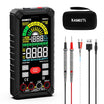

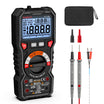
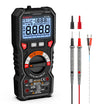
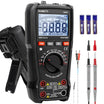
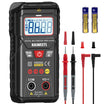
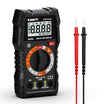
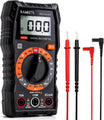
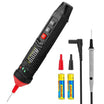
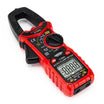

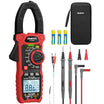


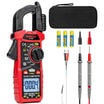






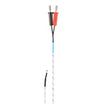


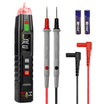

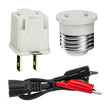
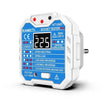

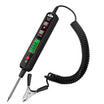



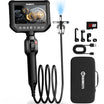
























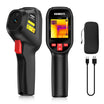



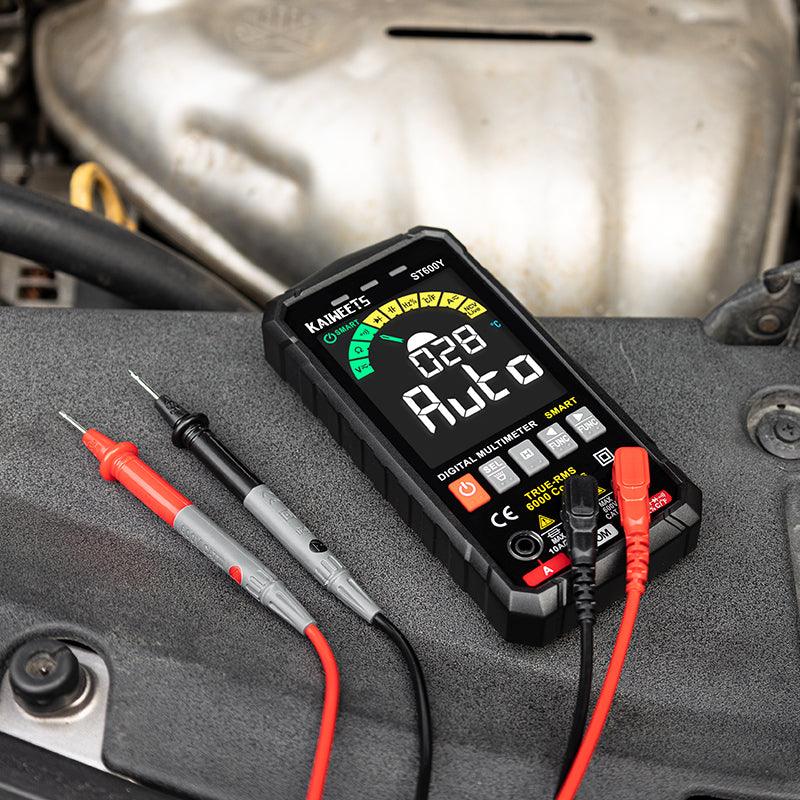

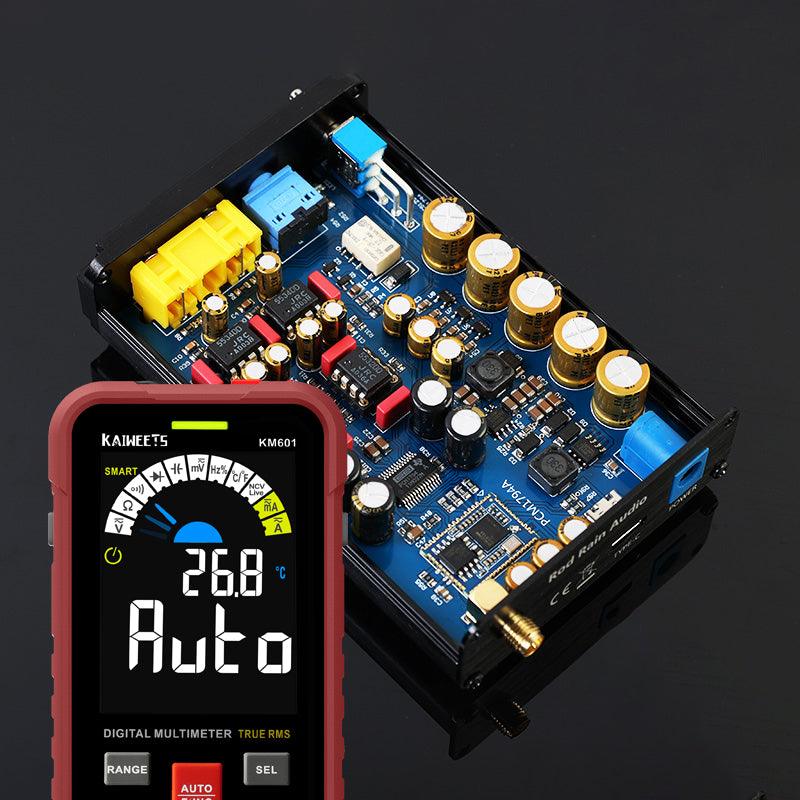
Commenta
Nota che i commenti devono essere approvati prima di essere pubblicati.
Questo sito è protetto da hCaptcha e applica le Norme sulla privacy e i Termini di servizio di hCaptcha.